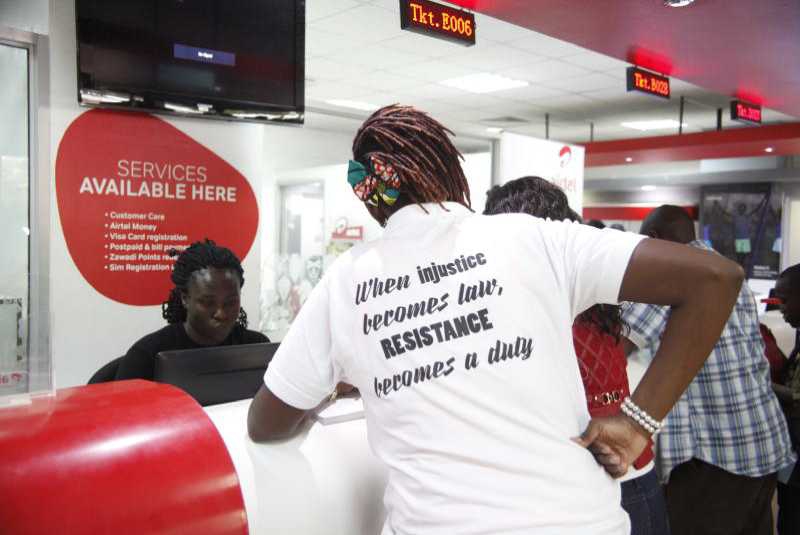×
The Standard e-Paper
Fearless, Trusted News

Airtel shop on Koinange Street was busy with people walking in to change from Safaricom line to Airtel on 4th November 2017. [PHOTO:WILBERFORCE OKWIRI]
It is good news since October 4, M-pesa and T-kash customers can send and receive funds directly to and from their mobile wallets.